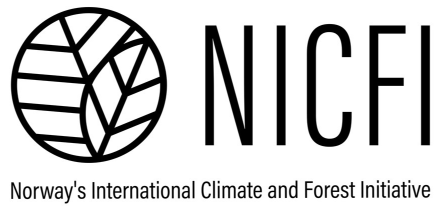CIFOR and partners have been implementing the Comparative Study on Reducing Emissions from Deforestation and Forest Degradation (GCS-REDD+) project in 22 countries since 2009. Phase 4 of the project, commencing in 2021, is being implemented in Peru, Democratic Republic of the Congo and Indonesia, and with select activities, in Brazil. It aims to provide tools and lessons to decision makers and professionals to design and implement effective, efficient and equitable policies and actions that reduce emissions from deforestation and degradation, improve the contribution of the forest sector to NDCs and guarantee the rights of indigenous peoples.
The project will focus on the co-production of knowledge in three main areas in which we have identified gaps for the formulation of effective, efficient and equitable policies, which must be addressed to attract, manage and grow results-based finance. These three areas are: (i) greater transparency in forest monitoring, REDD+ activities, national policies and global supply chains; (ii) more systematic evidence on which forest-friendly policies and actions work best, under what circumstances, and in what combinations; and (iii) a better understanding of the opportunities and barriers to transformational change related to the governance and political economy of forests in global, national and subnational policy arenas. The knowledge generated in this project will be used to co-produce a deforestation and forest degradation framework (“diagnostic framework”) and public policy scenarios with diverse actors through science and a public policy platform in each of the study countries. Our diagnostic framework will create an interdisciplinary and multisector platform that seeks to integrate an understanding of the impacts of policies and actions in different contexts and the political space to propose specific interventions with key actors in the countries.
In each country, we will invite experts in forestry and climate change policy, agriculture, finance and development to join the Public Policy Advisory Group (PAG). The PAG experts will come from government agencies, academia, civil society, the private sector, indigenous organizations and international NGOs. They will help align and link project activities with national needs and act as co-producers of knowledge through science and public policy platforms to support the implementation of scientific information in political processes. We seek that each year at least two dialogues are organized on the platforms to (i) promote the exchange of information and learning among key actors and share the lessons learned from world experiences and from other countries; (ii) promote discussion with key national stakeholders to jointly develop a deforestation and forest degradation framework, combined with policy scenarios for alternative development paths and forests; and (ii) align and link project activities with national needs.
The first meeting of the Science and Public Policy Platform in DRC will take place on 14 December 2021 with 25 participants from governmental and non-governmental organizations, as well as scientists from CIFOR. It will focus on REDD+ implementation in DRC after COP26 and the signing of the second Letter of Intent (LoI), priorities, legal and policy frameworks and contributions of the GCS-REDD+ project.
This is an invitation only event.
Contacts:
- Pham Thu Thuy (t.pham@cgiar.org)
- Blaise-Pascal Ntirumenyerwa Mihigo (blaisepascalmihigo@gmail.com)
























